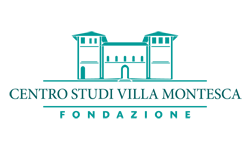The Erasmus+ project PULLSE is the fruitful result of the co-operation between the teacher training department of UCLL (Belgium), ICLON, the teacher training department of the University of Leiden (the Netherlands) and the Fondazione Hallgarten-Franchetti Centro Studi Villa Montesca (Italy).
Why PULLSE?
PULLSE aims to support teachers and students in achieving powerful education that prepares them for the complexity of the society we live in today. By choosing for the vision of perspective-based education we want to face the challenge to help children and youngsters becoming 21st-citizens of European society by actively engaging them to set out with this knowledge and skills.
Furthermore we note that current teaching tools and learning resources often do not live up to the requirements of high quality education. These learning tools are mostly offered by commercial educational publishers, and are therefore often insufficiently based on a powerful vision on education.
PULLSE approaches the teacher as a professional who can make his own didactic choices when creating a powerful learning environment for all of his pupils or students.
This means that education and the accompanying learning tools should not shy away from the complexity of reality, but should instead use this complexity to acquire knowledge more deeply and integrate this knowledge into a systemic approach of reality: no longer education with separate ‘compartments’ to look at reality, but one structured and multidimensional methodology to approach reality.
Perspective-based education and high quality teaching tools
That is why we have opted for the innovative method of perspective-based education (developed by the University of Leiden), which is strongly knowledge-based and which approaches meaningful topics from different angles. Each of these perspectives is equivalent to another, but highlights a different piece of reality. In this way, children/young people learn to look at the world in a broad and diverse way, gain broad knowledge from this systemic approach and learn to think about the world and their own role in it.
Obviously, this approach is very suitable for discussing relevant and contemporary issues, such as sustainability, ecology, economy, diversity, minorities, etc.
As we are convinced that such education can only be achieved if teachers and pupils have powerful learning tools that give them ownership of their own learning-environment, the development of high-quality teaching tools and learning resources accompanied by didactic guidelines is an important pillar of the project.
Objectives of the project
PULLSE wants to establish high-quality education in primary and secondary schools through perspective-based education, which implies a multidimensional approach to reality that stimulates pupils and students to think deeply on a systemic level.
Therefore we will develop high-quality teaching tools, which approach the teacher as a professional and which are freely accessible and free of any kind of commercialization. Teachers need to be in charge when creating a powerful learning environment.
Project output
PULLSE results in the design of high-quality teaching tools and learning resources about literacy, mathematics, science, and technology (‘the basic skills’) for primary and secondary education. The learning materials, flanked by didactic guidelines, support teachers to innovate their own teaching activities and to pursue high-quality education. As we want to reach as many educational professionals as possible, our project materials are freely available in English, Dutch and Italian.

